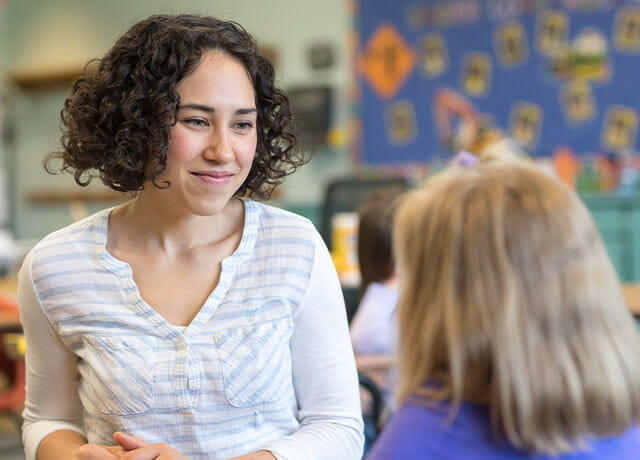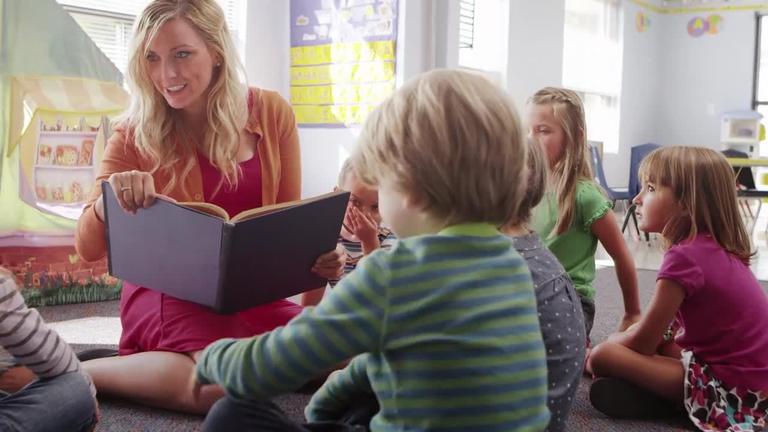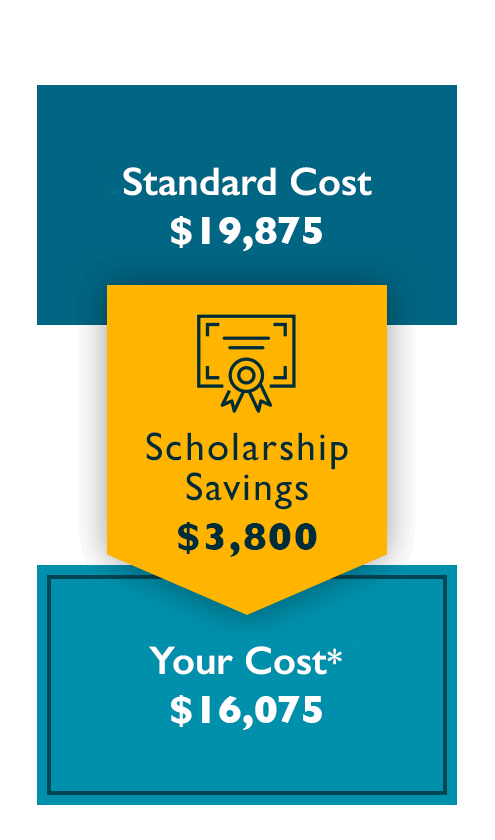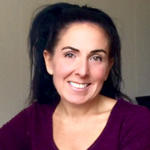Why Choose Walden?
Program Details
Curriculum
Degree Completion Requirements
- 50 quarter credits
- Foundation course (5 qtr. cr.)
- Core courses (40 qtr. cr.)
- Capstone course (5 qtr. cr.)
View the COMPLETE CURRICULUM PLAN.
Time to completion will vary by student, depending on individual progress and credits transferred, if applicable. For a personalized estimate of the number of your transfer credits that Walden would accept, call an Enrollment Specialist at 1-866-492-5336.
Admission Requirements
Program Admission Considerations: A bachelor's degree or higher.
General Admission Requirements: Completed online application and transcripts. Please note that the materials you are required to submit may vary depending on the academic program to which you apply. More information for international applicants.
Tempo Learning®
Tempo Learning® is an alternative way to earn your Walden degree. It’s different from our standard course-based learning because you can work at a pace that makes sense for you, and progress once you’ve shown you understand a subject. With Tempo Learning®, you have the flexibility of online learning, plus the ability to personalize and control the length, cost, and pacing of your program.
| Curriculum Component | Requirements | Cost | amount |
|---|---|---|---|
| Tuition | 50 quarter credit hours | $380 per quarter hour | $19,000 |
| Program Fee | Per quarter | $175 | $875 |
| $19,875** | |||
| BELIEVE & ACHIEVE SCHOLARSHIP YOUR TUITION | -$3,800 $16,075* | ||
*Represents course-based learning format, no specialization, minimum time to completion, and Believe and Achieve Scholarship. Your actual total program time and costs may vary.
**Tuition reflects the minimum time to completion. Time to completion varies by student, depending on individual progress and credits transferred, if applicable. Tuition and time to complete may be reduced if transfer credits are accepted, or if you receive grants, scholarships or other tuition reductions. Walden may accept up to 25 transfer credits. For a personalized estimate of the number of your transfer credits that Walden would accept, call an Enrollment Specialist at 844-767-3853.
Tuition and fees are subject to change. Books and materials are not included and may cost between $1,000 and $1,400.
| Curriculum Component | Requirements | Cost | amount |
|---|---|---|---|
| Tuition | 60 quarter credit hours | $380 per quarter hour | $22,800 |
| Program Fee | Per quarter | $175 | $1,050 |
| $23,850** | |||
| BELIEVE & ACHIEVE SCHOLARSHIP YOUR TUITION | -$3,800 $20,050* | ||
*Represents course-based learning format, specialization, minimum time to completion, and Believe & Achieve Scholarship. Your actual total program time and costs may vary. Believe & Achieve Scholarship savings based on current tuition. See Scholarship Details for more information.
**Tuition reflects the minimum time to completion. Time to completion varies by student, depending on individual progress and credits transferred, if applicable. Tuition and time to complete may be reduced if transfer credits are accepted, or if you receive grants, scholarships or other tuition reductions. Walden may accept up to 25 transfer credits. For a personalized estimate of the number of your transfer credits that Walden would accept, call an Enrollment Specialist at 844-767-3853.
Tuition and fees are subject to change. Books and materials are not included and may cost between $1,000 and $1,400.
Progress at Your Pace. Control Your Cost.
Walden’s Tempo Learning® programs follow a subscription-based pricing format. Students are billed a flat-rate for each 3-month subscription term. All pricing is represented in U.S. dollars and is subject to change.
| Program | Subscription Period Tuition | Subscription Period PROGRAM Fee | Subscription Period Time Frame |
|---|---|---|---|
| MS in Early Childhood Studies | $2,350 | $175 | 3-month subscription period |
| You may be able to complete your MS in Early Childhood Studies degree in 11 months for under $11,000.* | |||
*Represents Tempo Learning® format, Believe & Achieve Scholarship, and the fastest pace of our top 25% transfer students in this program in the Tempo Learning® format. Your actual total program time and costs will depend on your individual pace and transfer credits. A student’s pace is usually determined by their experience, ability to work independently, and availability. Believe & Achieve Scholarship savings based on current tuition. See Scholarship Details for more information.
With Tempo Learning, you may be able to complete your MS in Early Childhood Studies degree in 11 months for under $11,000.*
* Represents Tempo Learning® format, Believe & Achieve Scholarship, and the fastest pace of our top 25% transfer students in this program in the Tempo Learning® format. Your actual total program time and costs may vary. Tuition and fees are subject to change. See Tuition and Fees section and Scholarship Details for more information.
Program Outcomes
Master the Mechanics of Teaching and Learning
In Walden’s master’s in early childhood education program, you’ll explore how children’s brains develop and how early experiences affect learning and social emotional development. Gain strategies to advocate for the infusion of play and creativity into early childhood teaching and learning. Apply your skills to case studies and virtual experiences in varied areas of expertise, from infants and toddlers to children in grades P–3.
What’s the Career Impact of Earning an Early Childhood Master’s Degree?
America needs more qualified professionals to prepare children with the skills and confidence they need to succeed in school—and in life. According to job market data gathered by Burning Glass Technologies, demand for early childhood studies practitioners grew 144% from 2010 to 2018.2 The Bureau of Labor Statistics forecasts that employment for preschool and childcare center directors will rise at a rate of 7% through 2028.3
What Can I Do With an MS in Early Childhood Studies?
With a master’s degree, you can start a new chapter in your career—or build on your prior experience to become a leader and innovator in the early childhood field. Career options range from postsecondary teaching and advocacy roles to administrative and leadership positions within early childhood learning environments. Potential occupations include:
- Child and family advocate
- Public policy coordinator
- Child development instructor
- Professional development facilitator
- Lecturer in early childhood studies
- Childcare administrator
- Assistant director of a childcare center
- Director of a childcare center
- Owner of a childcare center
- Preschool director
- Program administrator for early childhood programs
Career options may require additional experience, training, or other factors beyond the successful completion of this early childhood studies master’s degree program.
Testimonials
Walden is so much more than an online university; it is a university that cares about your success as a person.
I love Walden for the education and support I have received from every instructor.
If I talk to others who are looking to pursue their degree, I always talk to them about Walden and online learning.
Related Articles
FAQ About Walden’s Online MS in Early Childhood Studies
While early childhood education continues to be of high importance to parents, policymakers, and the public, many incorrectly identify this critical period as birth through preschool or kindergarten. Although the brain develops the majority of its neurons between birth and 3 years old, early childhood education is defined as the period of birth through 8 years old, correlating with the second- or third-grade level.
Online or on campus, the right degree program can empower you with a deepened understanding of child development and learning, equipping you with the knowledge and professional competencies to help prepare you for roles in and out of the classroom.
A master’s in early childhood studies program can also help you link the importance of early childhood education to issues of equity and inclusion, helping students learn and grow in a variety of environments. You’ll examine trends, apply cutting-edge research to the field’s most pressing issues, and become a skillful collaborator with families, colleagues, and agencies.
The career options are numerous for someone with an MS in Early Childhood Education. If you’re interested in working in the childcare field, you could become a childcare administrator or the assistant director, director, or owner of a childcare center. You could work as a preschool director or a program administrator for early childhood programs. You might also pursue a career as a child development instructor or an early childhood studies lecturer. Or you could work on child and educational policies as a child and family advocate or a public policy coordinator.
If you’re interested in increasing your understanding of child development and effective learning practices, earning an MS in Early Childhood Education is worth it. In the degree program, you’ll gain a comprehensive understanding of how play, creativity, and core early childhood learning subjects intertwine to foster children’s inquisitiveness, nurture their unique interests, and cultivate a genuine enthusiasm for learning. With a master’s in early childhood education, you’ll have a degree that can enable you to thrive in an advocacy, leadership, or teaching role in an educational setting or an early childhood-focused organization.
The career outlook for those with a master’s degree in early childhood education shows growth in the coming years. According to the U.S. Bureau of Labor Statistics, employment of preschool and childcare directors will grow by 7% through 20281.
1Source: https://www.bls.gov/ooh/education-training-and-library/preschool-teachers.htm; national long-term projections may not reflect local and/or short-term economic or job conditions and do not guarantee actual job growth.
From public policy to professional development, the jobs for someone with an MS in Childhood Studies are as diverse as individuals and their reasons for pursuing an early childhood education degree. Below is a sample of potential career options:
- Child and family advocate
- Public policy coordinator
- Child development instructor
- Professional development facilitator
- Lecturer in early childhood studies
- Childcare administrator
- Owner, director, or assistant director of a childcare center
- Director or assistant director of a childcare program
- Preschool director
- Program administrator for early childhood programs
Career options may require additional experience, training, or other factors beyond the successful completion of a degree program.
Yes. When you enroll in an MS in Early Childhood Studies program, you will learn how children’s brains develop throughout childhood, including which early experiences promote or impede development. You will also gain an understanding of the many influences on child development, including brain architecture, mental health, toxic stress, trauma, and resilience.
Walden’s MS in Early Childhood Studies is a non-licensure degree program that is designed for existing licensed teachers or those in education who do not wish to teach in the classroom but are focusing their career on the importance of early learning. Many early childhood studies degree-holders work as advocates or take on leadership roles in early learning environments. Early childhood education degrees, on the other hand, are generally designed for first-time educators who wish to teach in the classroom and need a program that leads to licensure.
1Source: National Center for Education Statistics (NCES) IPEDS database. Collected using Burning Glass Technologies. Retrieved February 2020, using CIP code 13.1210 (Early Childhood Education and Teaching), 13.1207 (Montessori Teacher Education), and 13.1209 (Kindergarten/Preschool Education and Teaching). Includes 2017–18 provisional data.













